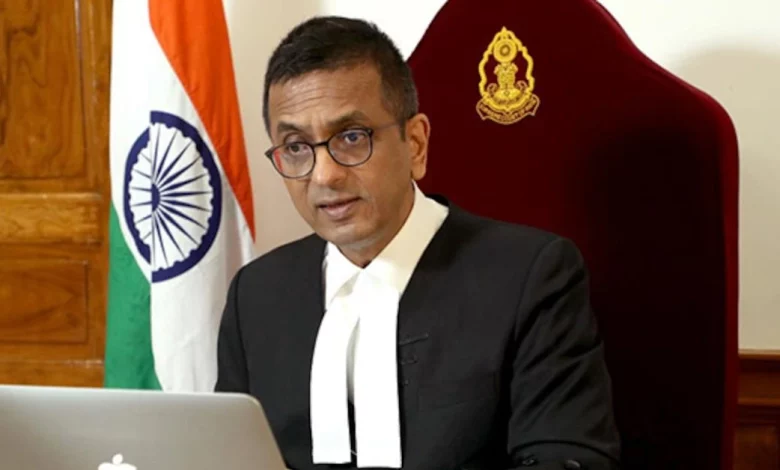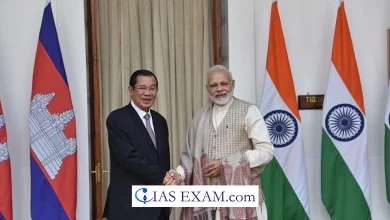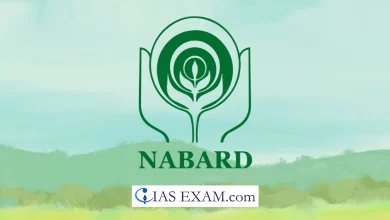Daily Current Affairs for UPSC
Practice of Forum Shopping
Syllabus- Indian Polity and Governance [GS Paper-2]

Context- Recently, the Chief Justice of India (CJI) has censured the act of Forum Shopping after a dispute referenced the conference before CJI in spite of the fact that he had referenced a similar case a day prior to another judge.
Key Highlights
- Forum shopping is the deliberate choice of a particular court for a legal case with the intention of obtaining a favorable outcome.
- Lawyers and litigants frequently incorporate this tactic into their litigation strategy.
- They might, for instance, select a higher court, such as the Supreme Court (SC), in order to attract more attention to their case. However, it is considered unfair if a person is clearly attempting to evade a particular judge or manipulate the system.
- In a similar vein, petitioners are referred to as “Bench Hunters” when they successfully secure a favorable order by having their cases heard by a specific bench or judge.
Advantages:
- It can permit offended parties to look for equity and remuneration in a court that is more thoughtful to their cases or interests.
- It has the potential to boost efficiency and quality of service among courts and judges by encouraging competition and new ideas.
Disadvantages:
- Gathering shopping has been scrutinized by judges since it can prompt treachery for the restricting party and make a lopsidedness in the responsibility of various courts.
- Judges have referred to the overburdening of certain courts over others and disrupting legal interaction.
- By creating a perception of bias or favoritism, it has the potential to undermine the authority and legitimacy of courts and judges.
- Conflicts of law and multiple proceedings can lead to increased costs and complexity in litigation.
Keeping Forum Shopping Away:
- Forum shopping is discouraged or prohibited by courts in the UK and the United States. In precedent-based regulation nations, the guideline of “forum non-conveniens” is utilized to forestall the act of Discussion Shopping.
- The United States, Canada, and the Commonwealth all share the British heritage of Common Law, and their legal systems are largely based on common law principles.
- A court can use this principle to decide not to have jurisdiction over a case if another court would be better suited to hear it. This helps distribute cases to the appropriate judicial authorities and ensures fairness.
How Does Forum Shopping Affect Justice and the Judicial Process?
- It may jeopardize the natural justice principle, which stipulates that everyone ought to be afforded an impartial hearing.
- It can disregard the standard of comity, which expects that courts ought to regard and concede to one another’s choices on issues of normal interest.
- It can hamper the guideline of certainty, which expects that prosecution ought to end eventually and not be delayed endlessly.
What is the SC’s View on Forum Shopping?
- Dr. Khair-Un-Nisa and Others vs. UT of Jammu and Kashmir and Others, 2023
-
-
- The Jammu, Kashmir, and Ladakh High Court forced costs worth one lakh rupees on the candidates for enjoying discussion shopping by documenting various petitions before various wings of the court, notwithstanding having a similar reason for activity.
- State of West Bengal v. Vijay Kumar Ghai, 2022:
- The SC named discussion shopping as a “disreputable practice by the courts” that “has no sanction and paramountcy in law”.
-
- The State of Rajasthan vs. Dhanwantri Institute of Medical Science in 2022:
-
-
- A party was ordered to pay 10 lakh rupees in costs by the Rajasthan High Court for forum shopping.
-
- Association of India and Ors. versus Cipla Ltd. 2017:
-
-
- The SC set out a “utilitarian test” to be embraced for Discussion Shopping.
- The Supreme Court established the “functional test” to determine whether a litigant is genuinely seeking justice or using forum shopping to manipulate others.
-
- Rosmerta HSRP Ventures Pvt. Ltd. vs. Govt. of NCT of Delhi & Anr 2017:
-
-
- A private company was ordered to pay costs by the Delhi High Court because it was found to be forum-hunting in an arbitration case.
-
- Union of India v. Kamini Jaiswal, 2017:
-
- That’s what the SC said “corrupt components” are dependably on the chase to track down a court or discussion of their decision yet are not allowed to do as such by regulation.
- Om Prakash v. Chetak Construction Ltd., 1988:
- The Indian Supreme Court emphasized that litigants should not be allowed to choose their preferred court. The court stated that forum shopping should not be attempted at any point.





.png)



